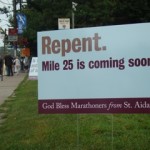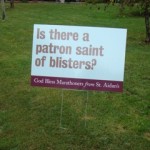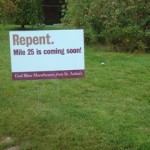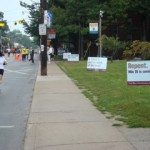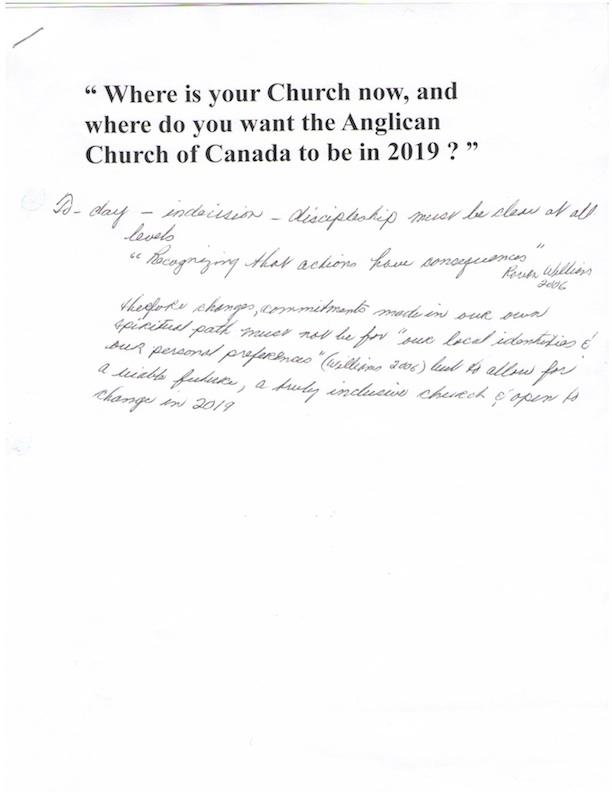Vision 2019
Thank you for your urgings to write and for your insistence that one may respond at any level. I joined the Anglican Church in late1998 after several decades of ministry in another denomination, and I was priested in March, 2000. I feel as though I have found a spiritual home in Anglicanism, and consequently, I am very interested in its future in Canada.
Your questions use the word “church” in two different senses. In the first it is “church,” implying a local parish. In the second it is “Anglican Church of Canada,” a denomination. My response to both questions focuses on “church” as denomination.
Where is the Anglican Church of Canada Now?
There are many signs of spiritual life in the ACC which hold promise for the future. I mention briefly the Faith Works program of the Diocese of Toronto and the fact that the word “mission” appeared in diocesan discourse recently. Faith Works has been a part of our diocese for some time, but the idea of msssion seems to have caught on perhaps having noted the way some parishes do look beyond themselves. St. Peter’s, Cobourg, under the leadership of Canon Peter Walker would be one and perhaps St. David’s, Weston, is another. I am sure there are others. Bishops in full episcopal vestments handing out invitations to church in Union Station, Toronto would be a further encouragement to mission.
In addition to these strengths, we Anglicans are blessed with a deep and rich spiritual tradition and profound liturgies. Added to this we Anglicans as a group have an extraordinary place of interest among the cultural elites of our society—journalists, politicians, and leaders in the business community. Regrettably, all of this is being seriously threatened. The threat—an extemely soft spiritual and theological centre.
This condition is being illustrated in many ways. These may be exceptions to the rule or they may be the rule to which there are expections. (1) In my hearing and in committee, an Anglican priest in the Diocese of Toronto stated that she would not permit her life to be shaped by the Bible. (2) There is a persistent religious relativism which has appeared from the episcopal chair to the pew. (3) We have permitted societal values to shape belief and policy to a remarkable extent.
Speaking of the 1950s and 60s, Robert Bellah, Episcopal layman and renowned scholar, and associates, in their analysis of American life, outline reasons which explain “. . . the quasi-therapeutic blandness that has afflicted much of mainline Protestant religion at the parish level for over a century. . . .”[1] One was the loss of confidence among religious intellectuals. I take that to mean that the biblical and theological liberalism which dominated most North American seminaries at the time made it difficult for them to offer clear and substantial teaching regarding historic, orthodox Christianity. As a student in the 60s in two seminaries, which were not Anglican I might add, I experienced precisely this. This has left “mainline” denominations, including our own, particularly vulnerable to non-Christian influences from our society. In another place, Bellah muses about the extent to which “. . . the world in which we live so invaded and eviscerated those communities [religious communities in the United States] that they have difficulty understanding their own core meanings.”[2]
The consequences are striking. We have lost members. These are not those who “are not leaving, they’re just not coming.” They have left. The ACC reached its highest number of persons per 1000 of Canadian population in 1921. It was 160 per 1000. It began to decline then, a decline which became rapid after 1961,until it reached the number found in the 2001 census—68 persons per 1000. This has meant the undermining of parish life and outreach and the slashing of budgets. Prominent American sociologist, Rodney Stark, in an interview in 2004 was asked what he thought about churches which choose to make themselves more popular by being very undemanding in either thought or practice. Stark replied: “They’re death wishes. People value religion on the basis of cost and they don’t value the cheapest ones the most. Religions that ask nothing get nothing.”[3]
It seems to me that we are in a position in which our basic theology threatens everything we are doing. We may be able to generate some enthusiasm by promotion and intense communication, but eventually the soft theological centre will again derail us.
Where Should the Anglican Church in Canada Be in 2019?
Led by its clergy, the ACC should be embracing the historic creeds and the biblical revelation of God in Christ, resulting in more people being drawn into relationship with God through Christ in the power of the Holy Spirit. There should be less reliance on old “liberal”, bultmanian modalities, and there is plenty of help available. To name only a few, The Rt. Rev. N. T. Wright, Prof. Christopher Seitz, Prof. Richard Bauckham, and Prof. Anthony Thistleton, Anglicans all, are doing brilliant work. What they are writing and saying should trouble fundamentalists of the left as well as those of the right.
The ACC should be open and receptive to all, acknowledging that all of us stand under scripture and are subject to the judgment of God. The scriptures make very clear how we are to live our lives both for God’s glory and to our own benefit. The denomination should be characterized by people committed to Jesus Christ and acknowledging him as Lord who are going into society at all levels to help others find the lives that God intends for them.
The Rev. Dr. Ronald Kydd
Honourary Assistant, St. Peter’s, Cobourg
and Research Professor of Church History,
Tyndale Seminary, Toronto
[1] Robert Bellah and Associates.
Habits of the Heart: Individualism and Commitment in American Live (Berkeley: University of California Press, 1996), p. 238.
[2] Bellah, The Robert Bellah Reader, Edited by Robert N. bellah and Steven N. Tipton (Durham: Duke University Press, 2006), p. 215.
[3] Posted July 22, 2004. Stark and associates expanded on this in What Americans Really Believe: New Findings from the Baylor Surveys of Religion (Waco, Texas: Baylor University Press, 2008), p. 29-36.






